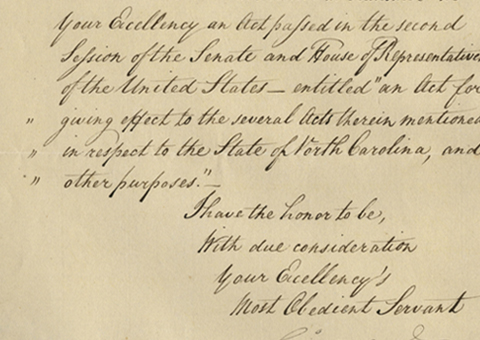Lord Mountbatten Thanks Admiral Hyman Rickover For Bringing American Nuclear Technology to the UK and Making Possible the Modern Royal Navy


Mountbatten was Rickover's British counterpart, and Rickover's cooperation was a prerequisite to the required transfer of American technology.
In 1955 the U.S. Navy completed the USS Nautilus, the world's first nuclear-powered submarine. It was perfectly clear at that moment that any effort to build and maintain a modern Navy would require nuclear-powered ships. During subsequent exercises with the Royal Navy, Nautilus demonstrated the advantages of the nuclear submarine against British...
In 1955 the U.S. Navy completed the USS Nautilus, the world's first nuclear-powered submarine. It was perfectly clear at that moment that any effort to build and maintain a modern Navy would require nuclear-powered ships. During subsequent exercises with the Royal Navy, Nautilus demonstrated the advantages of the nuclear submarine against British anti-submarine forces, which were now outdated. The Admiralty appreciated the need for nuclear-powered vessels, and assigned the First Sea Lord, Earl Mountbatten of Burma, to lead the effort to build nuclear-powered submarines. The plan was to build all-British nuclear submarines.
Observers saw that much time would be saved if Britain could and would take advantage of U.S. nuclear technology. Admiral Hyman Rickover was in charge of the American naval nuclear power program, and his cooperation would be necessary for the British to have the opportunity to do so. However, he was set against any transfer of American nuclear technology, and indeed prevented Mountbatten inspecting USS Nautilus in 1955. His opposition was a formidable obstacle, and he was a powerful man not known for being easily persuaded to change his mind. For their part, it appeared that the proud British might be reluctant to accept American reactor plants in their warships.
Nor were the two leaders likely allies. Mountbatten was the courtly great-grandson of Queen Victoria and uncle of Prince Philip; while Rickover was a Jewish immigrant known for being blunt and even abrasive. Born the same year, Rickover was amused to learn that while his family was suffering in czarist Poland, Mountbatten's family was being received by Czar Nicholas II. This was not an auspicious beginning.
However, in 1956, Rickover visited Britain and saw first hand that the British nuclear submarine program would not bear fruit for many years. He withdrew his objections, saying "England has been a real friend and ally of America for generations. We should help them." When in light of this it appeared that the proud British might be reluctant to accept American reactor plants in their warships, Rickover insisted on a meeting alone with Mountbatten, in which he asked Mountbatten, "Do you want a working reactor plant now, or would you rather preserve British pride?" Mountbatten emerged from the meeting and told surprised British officials that they were excepting Rickover's offer of American help. Officially, the aid was provided in accordance with the 1958 US/ UK Mutual Defense Agreement.
Rickover enjoyed working with the British, who treated him with extraordinary courtesy and respect, and the program worked well. In 1960, Queen Elizabeth II launched the HMS Dreadnought as Britain's first nuclear powered submarine. It was a perfect example of American/British cooperation.
Signed photograph, with an extraordinary powerful inscription: "To Admiral Rickover in token of our friendship and his unique help with H.M.S. Dreadnought. Mountbatten of Burma." It remains in its original Mountbatten of Burma presentation frame, which is somewhat frayed. We obtained this directly from the Rickover family, and it is offered for sale here for the first time.
There is an amusing postscript to their relationship, showing one man as an archetypal Englishman and the other as an archetypal American. Mountbatten was visiting the United States and sought Rickenbacker's support for something the British desired. In a private meeting with Rickover, Mountbatten mentioned that if Rickover gave his support, he might receive a knighthood (Americans can receive honorary knighthoods, as has Colin Powell). Rickover told his wife he was surprised that Mountbatten didn't know him better than that, "that I would fall for a knighthood."

Frame, Display, Preserve
Each frame is custom constructed, using only proper museum archival materials. This includes:The finest frames, tailored to match the document you have chosen. These can period style, antiqued, gilded, wood, etc. Fabric mats, including silk and satin, as well as museum mat board with hand painted bevels. Attachment of the document to the matting to ensure its protection. This "hinging" is done according to archival standards. Protective "glass," or Tru Vue Optium Acrylic glazing, which is shatter resistant, 99% UV protective, and anti-reflective. You benefit from our decades of experience in designing and creating beautiful, compelling, and protective framed historical documents.
Learn more about our Framing Services



































































































